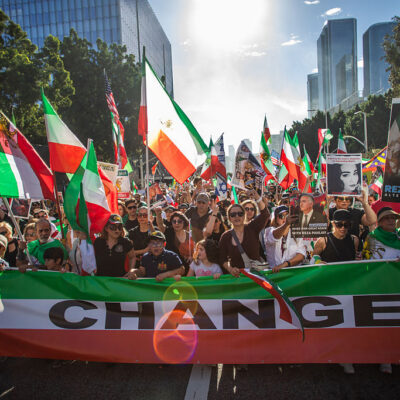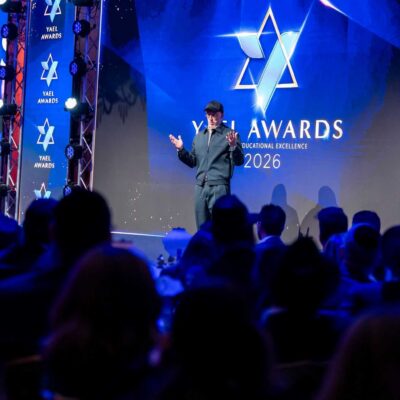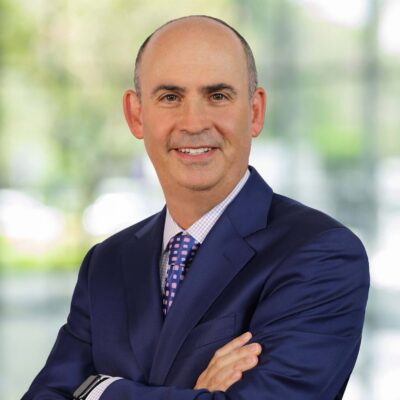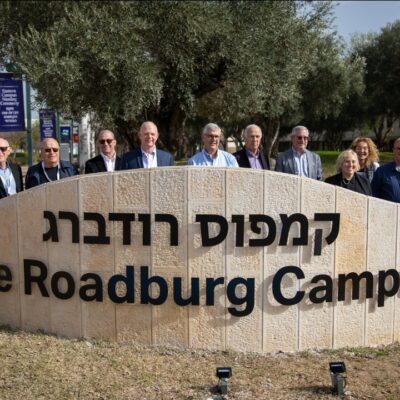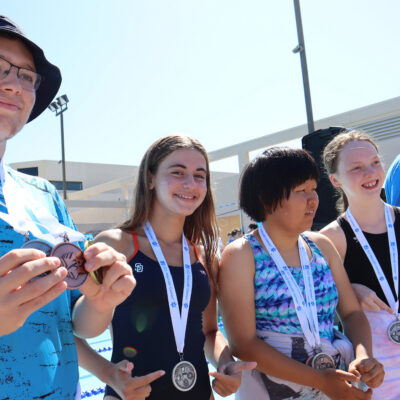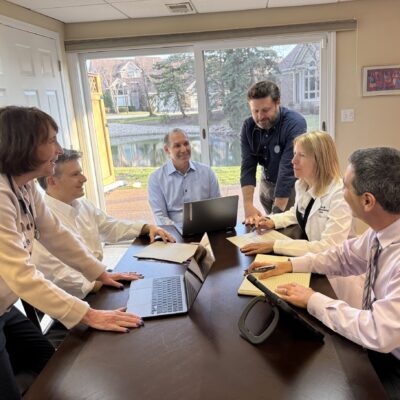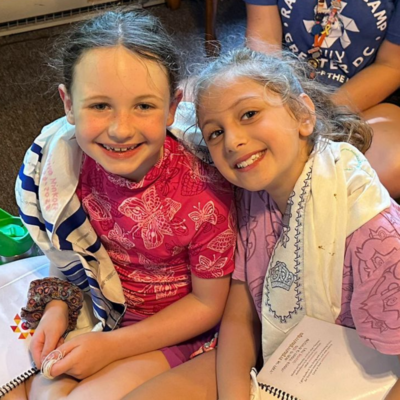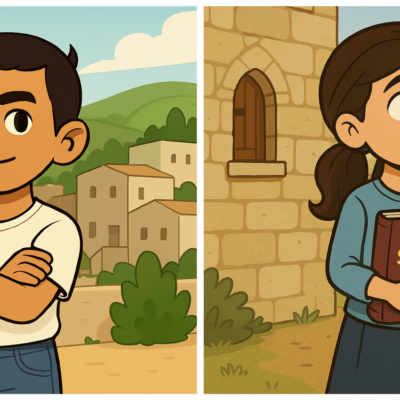An Open Letter to My Camp Director: “The Things We Have Gained”

Dear Rabbi Joel,
A few months ago,when many in-person camp experiences were officially canceled, including all Ramah camps, you put into words what I struggled to express: “The Things We Will Lose.” You quantified “the unquantifiable emotional losses of a cancelled summer,” many of which had not yet come to my mind, and you helped me cry. And yes, I needed to cry. You helped create a space to mourn the loss of camp and made it publicly acceptable to express sadness.
Just over a year ago, Foundation for Jewish Camp offered me the position as Day Camp Fellow. As excited as I was to embark on this journey, I also felt a sense of loss. As the Day Camp Fellow, I knew I would not be spending my summers at Camp Ramah in the Poconos, a place I have called home since I was four years old. You told me I would be an asset to Ramah Day Camp of Philadelphia, but all I could think about were the friends I would not see, instead of the friends I would make. I thought about how much I would miss stargazing on the migrash (field) or watching the sunrise over the agam (lake). What I didn’t realize at the time, was how much I would enjoy Shabbat singing by the Etz t’fillah (prayer tree) and “flying” from Elkins Park to Israel on Yom Yisrael (Israel day). Joel, you taught me that it’s not about “The Things We Will Lose,” but the things we will gain.
At the time, your article helped validate my feelings of loss and longing, but now, having successfully run virtual programming for approximately 150 day campers and their families each week, I find myself in a space of gratitude. We have gained so much, and it’s time we celebrate that.
So, allow me to share with you what we, at Ramah Day Camp, have gained…
58 New Campers – Campers who were not enrolled in in-person camp for summer 2020, but who joined us because we were online. These campers were able to make new friends, learn new songs, and experience the magic of Jewish camp.
20 Parents – Parents who did rikkud (dance) with us during chuggim (electives), parents who hopped on the Shabbat train and ran around the living with their children, parents who helped out with bishul (cooking) and made smoothies and chocolate balls, parents who wouldn’t have been able to experience the magic of Ramah firsthand had this been a typical summer.
6 New Camp Leaders, Our Madrichim (Counselors) in Training (MITs) – Fourteen and fifteen year-olds who spent hours each week learning about leadership, what it means to be a Jewish role model, and how to be madrichim. The virtual platform allowed them to take greater ownership of program planning. They co-hosted chuggim, worked with our edot (age groups), and brought contagious ruach (spirit / energy) to our camp-wide programming. I am excited for them to continue bringing this ruach to camp in future summers as madrichim.
A Sense of Unity with 12 Other Ramah Camps – While our summer locations typically keep us separate, this summer, the summer of distancing, enabled us to come together. Ramah Day Camp joined Ramah Poconos for our Yamei Meyuchad (special days), we exchanged different rikkudim (dances), and we came together in t’fillah (prayer). We joined the 3 other Ramah day camps and 9 Ramah overnight camps for chuggim led by National Ramah. While we created videos and enhanced our drama skills, we also made new friends. We talked about who has a lake at their camp and who has a pool. We exchanged camp stories and memories. We came together to sing on Thursday and Sunday nights with Rabbi Josh Warshawsky and Rick Recht. And we sat on our floors on Tisha B’Av as we read Eicha as one Ramah community.
1 Deep Love for Ramah – On the last day of camp, our Zoom chat overflowed with messages from our campers: “I love Ramah,” “Ramah’s the best,” “ILOVEYOU.” Many of these campers had been with us for many summers, while others, had never been to camp before. For the new campers, Ramah has only ever been virtual. As Elana Rivel, the director of Ramah Day Camp shared with me, “It is clear that Ramah is more than a location; it is about the people, the experiences, the language, and the ruach.”
My first summer on tzevet (staff), you challenged the entire camp to recite 100 brachot (blessings) in one day. We said some brachot as individuals and some as an entire camp, but by the end of the day, we had not only completed your challenge, but fulfilled a Jewish obligation (Menachot 43b:15). Some days it is easier to count our blessings than others, but by obligating us to recite 100 brachot everyday, Judaism helps us live in a state of gratitude. The Shehecheyanu prayer provides us with the language to verbally express gratitude for our new experiences and gains: Baruch atah Hashem Elokeinu Melech haolam shehecheyanu, v’kiy’manu, v’higiyanu laz’man hazeh – Blessed are you, Lord our G-d, King of the Universe, who has kept us alive, sustained us, and brought us to this occasion. This summer has provided us with countless shehecheyanu moments. Joel, thank you for helping us get to this point, for allowing 58 new campers to join the Ramah community, and for making camp happen this summer and always.
I’m looking forward to a time when we can be together again, in person, at machaneinu Ramah.
B’ahava,
Rebecca Hersch (Herschey)
Rebecca is the Day Camp Fellow at Foundation for Jewish Camp. Following in her parents’ footsteps, Rebecca attended Camp Ramah in the Poconos as both a camper and counselor. After spending fifteen summers there, she now works at Ramah Day Camp of Philadelphia as a Rosh Edah (Unit Head) and during the year, she supports and elevates the field of nonprofit Jewish day camping. Rebecca recently graduated from Brandeis University where she studied Sociology, Near Eastern and Judaic Studies, and Religious Studies.
She is grateful to her thought partners on this article, Jenni Zeftel and Rabbi Avi Orlow, and to Elana Rivel and Rabbi Joel Seltzer for their support.
This piece is the final submission of Foundation for Jewish Camp’s 2020 summer series. Visit www.jewishcamp.org/blog to read more.

 Add EJP on Google
Add EJP on Google
